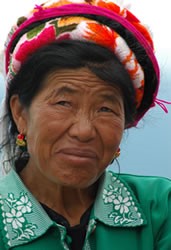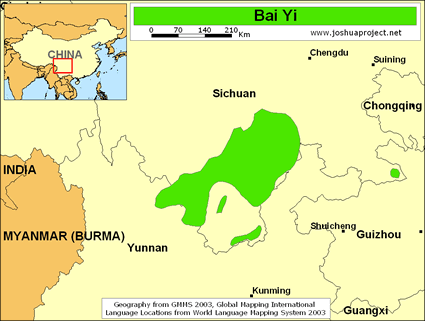Many of the Bai Yi are a Yi-Han ethnic mix. Until the 1950s, Nosu tribesmen regularly raided Chinese villages and seized the inhabitants for slave labor. The Bai Yi are descendants of these slaves. The Bai Yi speak a different language from the many other groups called "Bai Yi" in southern China.
The Bai Yi could scarcely believe it when they were liberated from the grip of the Nosu. One former slave explained, "In the beginning ... everyone was skeptical and refused to believe the ganbu's [cadre's] promises to end slavery. But then a few who dared to run away from their masters were protected by the ganbu and allowed to start new lives. Word got around, and eventually we all became free."
The Bai Yi practice polytheism, animism, and also atheism. While enslaved by the Nosu, the Bai Yi were barred from speaking with missionaries. One missionary wrote, "Of the Nosu there are some believers. ... Of the serfs - well, what chance has a slave, anyway." There are presently only a handful of known Bai Yi believers.
The Bai Yi people need to be introduced to their Creator, hear the good news, and have the opportunity to experience the salvation provided by Jesus Christ.
Pray for the Lord to soften the hearts of the Bai Yi and prepare them to receive his word.
Pray for these former slaves to find true freedom in Christ.
Pray for the Lord to establish his church among the Bai Yi.
Pray for a great harvest of souls in the Bai Yi community.
Scripture Prayers for the Bai Yi in China.
Operation China, Asia Harvest, Copyrighted © Used with permission.
| Profile Source: Joshua Project |











